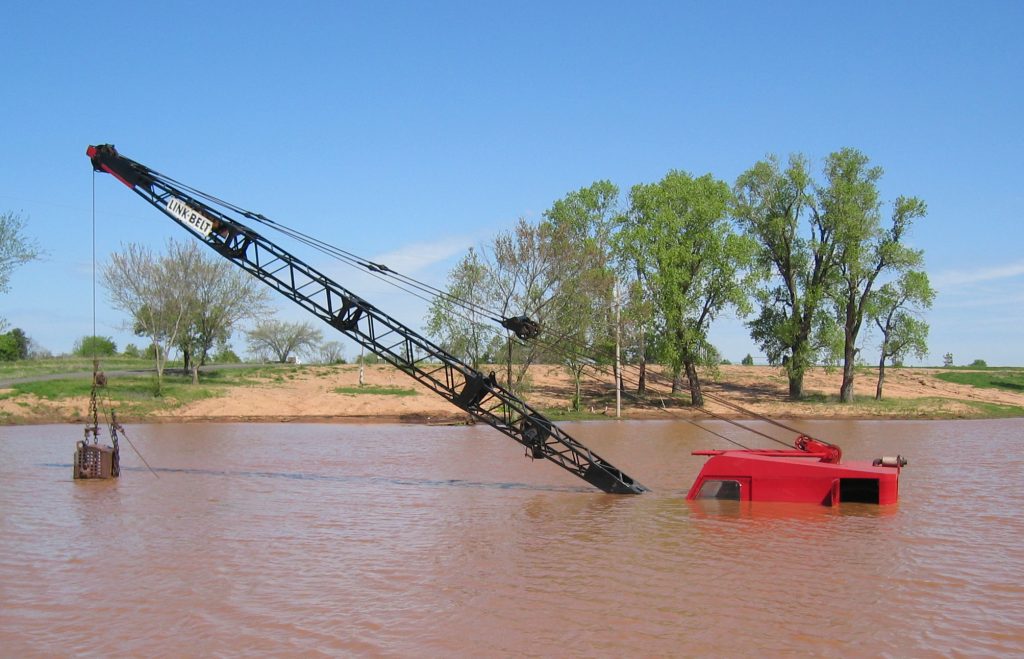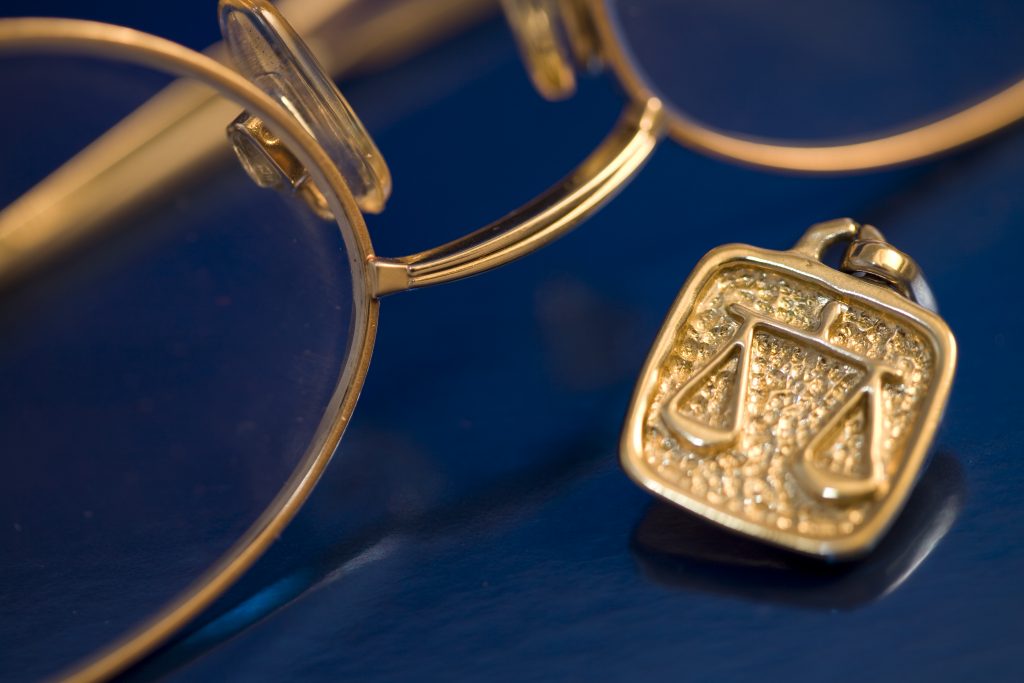 When someone files a civil lawsuit in the Parish of Jefferson in Louisiana, or anywhere else in the state, it can often leave a defendant wondering how long the case will take to wrap up. In cases where neither party has a strong desire to settle, discovery procedures may take years to complete. Capitalizing on this concern, a stubborn plaintiff or defendant may use stalling tactics to leverage the other party into a settlement. How can the opposing party fight this stalling tactic? The following case discusses the rules governing what constitutes an “abandoment” of a lawsuit in Louisiana.
When someone files a civil lawsuit in the Parish of Jefferson in Louisiana, or anywhere else in the state, it can often leave a defendant wondering how long the case will take to wrap up. In cases where neither party has a strong desire to settle, discovery procedures may take years to complete. Capitalizing on this concern, a stubborn plaintiff or defendant may use stalling tactics to leverage the other party into a settlement. How can the opposing party fight this stalling tactic? The following case discusses the rules governing what constitutes an “abandoment” of a lawsuit in Louisiana.
On September 23, 2010, a medical corporation (Claiborne Medical Corporation) and Dr. Fiaz Afzal (“Plaintiffs”) filed suit against Ellen Mullins and ABC Insurance Company (“Defendants”) for legal malpractice. On January 6, 2012, Plaintiffs took Defendant Mullins’ deposition, and the parties had a deposition for Dr. Afzal scheduled for January 31, 2012. On January 30th, at Defendant Mullins’ request, Dr. Afzal’s deposition was postponed. Three years after her own deposition, with Dr. Afzal’s deposition never taking place, Defendant Mullins filed a motion for a dismissal on grounds of abandonment. The argument was that the Plaintiffs had not taken any action in the case since January 6, 2012 (the date of her own deposition). On January 15, 2012, Plaintiffs served Defendant Mullins with discovery requests, and on February 11, 2015, they filed a motion to set aside the trial court’s dismissal.
In an effort to protect both sides of a lawsuit, Louisiana law rules a case automatically abandoned “when the parties fail to take any step in its prosecution or defense in the trial court for a period of three years…” La. C.C.P. art. 561. The Louisiana Supreme Court has recognized that this rule is not to create dismissals on a technicality, but instead to provide a resolution when a party has clearly given up on the case. La. DOT & Dev. v. Oilfield Heavy Haulers, L.L.C., 79 So.3d 978 (La. 2011). In Oilfield, a defendant’s letter to reschedule a discovery conference was considered a “step” by the defendant when the plaintiff responded to the letter and complied with the defendant’s request.
 Louisiana Personal Injury Lawyer Blog
Louisiana Personal Injury Lawyer Blog


 Buying property in “as is” condition can pose a substantial risk to the purchaser of the property. An “as is” sale means that once the sale is closed, the buyer has extremely limited recourse against the seller for any problems that might be later discovered with the property. Remorseful buyers may attempt to rescind a sale by claiming that the sellers failed to disclose defects with the property prior to the sale. But this strategy by no means ensures a favorable outcome for the buyer, as a case involving a house purchase in the City of Rosepine demonstrates.
Buying property in “as is” condition can pose a substantial risk to the purchaser of the property. An “as is” sale means that once the sale is closed, the buyer has extremely limited recourse against the seller for any problems that might be later discovered with the property. Remorseful buyers may attempt to rescind a sale by claiming that the sellers failed to disclose defects with the property prior to the sale. But this strategy by no means ensures a favorable outcome for the buyer, as a case involving a house purchase in the City of Rosepine demonstrates. Disputes over injuries that occur on the job can be difficult to resolve for both employer and employee. Louisiana’s Third Circuit Court of Appeal addressed a common source of dispute — whether an employee’s medical condition was actually caused by his employment — in a case involving a welder who developed compartment syndrome.
Disputes over injuries that occur on the job can be difficult to resolve for both employer and employee. Louisiana’s Third Circuit Court of Appeal addressed a common source of dispute — whether an employee’s medical condition was actually caused by his employment — in a case involving a welder who developed compartment syndrome.  Attorneys are known for being way too expensive to the general public. Most people think that attorney’s charge an obscene amount for every little task that they do pertaining to a case, such as talking on the phone with their client or sending an email. However, unknown to most people attorneys are not allowed to charge fees that are excessive.
Attorneys are known for being way too expensive to the general public. Most people think that attorney’s charge an obscene amount for every little task that they do pertaining to a case, such as talking on the phone with their client or sending an email. However, unknown to most people attorneys are not allowed to charge fees that are excessive.  Land within subdivisions is often subject to various restrictions. It is important to know and follow these restrictions to avoid potential legal action. The following case in Desoto parish discusses some of the legal implications of neighborhood subdivision restrictions in Louisiana.
Land within subdivisions is often subject to various restrictions. It is important to know and follow these restrictions to avoid potential legal action. The following case in Desoto parish discusses some of the legal implications of neighborhood subdivision restrictions in Louisiana. Selling a home can be a stressful time with many issues to consider. You want to make sure you are getting a fair price and that the home appeals to potential buyers. One aspect you might overlook is potential liability for injuries that occur when potential buyers tour your home.
Selling a home can be a stressful time with many issues to consider. You want to make sure you are getting a fair price and that the home appeals to potential buyers. One aspect you might overlook is potential liability for injuries that occur when potential buyers tour your home.  Compensation for work-related injuries can be an area of concern for both employees and employer. But what happens when the employee provides inconsistent stories that refute the injury alleged to have been suffered? The Second Circuit Court of Appeal for Louisiana recently addressed the issue.
Compensation for work-related injuries can be an area of concern for both employees and employer. But what happens when the employee provides inconsistent stories that refute the injury alleged to have been suffered? The Second Circuit Court of Appeal for Louisiana recently addressed the issue.  You never know when a leisurely drive can turn into a lengthy lawsuit. Larry Dragna was on a drive in November, 2011, when his vehicle was hit by a driver for A&Z Transportation. KLLM Logistics hired A&Z to transport a freight load from Louisiana to Michigan. Before hiring A&Z, KLLM followed its internal selection policy by reviewing A&Z on a transportation industry review website, which showed that three of A&Z’s scores were at a point that indicated problems in certain categories. Although the indicators showed instances of unsafe driving, fatigued driving, and maintenance issues, there were no federal regulations that advised KLLM not to hire companies with scores like A&Z. KLLM, however, had an internal policy to not hire carriers with three troublesome scores until it had discussed the scores internally or with the carrier. There is no evidence if whether KLLM followed this policy when they hired A&Z.
You never know when a leisurely drive can turn into a lengthy lawsuit. Larry Dragna was on a drive in November, 2011, when his vehicle was hit by a driver for A&Z Transportation. KLLM Logistics hired A&Z to transport a freight load from Louisiana to Michigan. Before hiring A&Z, KLLM followed its internal selection policy by reviewing A&Z on a transportation industry review website, which showed that three of A&Z’s scores were at a point that indicated problems in certain categories. Although the indicators showed instances of unsafe driving, fatigued driving, and maintenance issues, there were no federal regulations that advised KLLM not to hire companies with scores like A&Z. KLLM, however, had an internal policy to not hire carriers with three troublesome scores until it had discussed the scores internally or with the carrier. There is no evidence if whether KLLM followed this policy when they hired A&Z.  There are times when a Trial Court may issue partial judgments that are non-appealable. But this does not always mean the lawsuit is over. When this happens it is important to have an excellent attorney to navigate the complex procedural processes to allow a party to reach the stage where an Appellate Court may review the factual issues of their case. That was the case for a Lafayette area man who ran into problems with a home he recently purchased.
There are times when a Trial Court may issue partial judgments that are non-appealable. But this does not always mean the lawsuit is over. When this happens it is important to have an excellent attorney to navigate the complex procedural processes to allow a party to reach the stage where an Appellate Court may review the factual issues of their case. That was the case for a Lafayette area man who ran into problems with a home he recently purchased. While there are many steps that can be taken to prevent road accidents, accidents still happen. When accidents occur, we are left to determine who is at fault. For many people, automobile insurance is the only lifeline to help them recover from the accident. However, to automobile insurers, the question of who is at fault is incredibly important. Is there ever truly one party who is 100% at fault for a crash? How is a crash handled if it involves unconventional modes of transportation? Can someone be at fault if they are not legally negligible? These issues were explored in a case brought to the State of Louisiana Third Circuit Court of Appeals.
While there are many steps that can be taken to prevent road accidents, accidents still happen. When accidents occur, we are left to determine who is at fault. For many people, automobile insurance is the only lifeline to help them recover from the accident. However, to automobile insurers, the question of who is at fault is incredibly important. Is there ever truly one party who is 100% at fault for a crash? How is a crash handled if it involves unconventional modes of transportation? Can someone be at fault if they are not legally negligible? These issues were explored in a case brought to the State of Louisiana Third Circuit Court of Appeals.